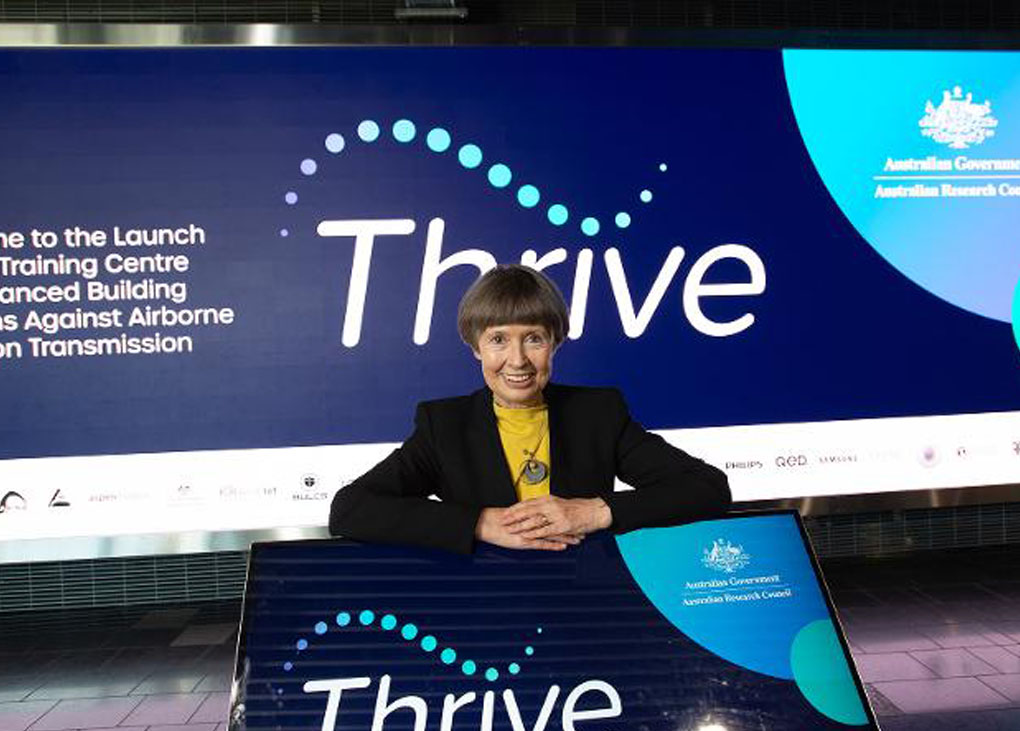The Queensland University of Technology (QUT) has launched the ARC Training Centre for Advanced Building Systems against Airborne Infection Transmission (Thrive). The $5 million training centre aims to develop a system that will reduce indoor airborne infection transmissions by improving indoor air quality (IAQ).
QUT’s Distinguished Professor and Australian Laureate Fellow in the School of Earth and Atmospheric Sciences, Lidia Morawska, is leading the centre. Recognised as one of the world’s authorities in building infection transmission, she believes the centre will be a catalyst for revolution and assist in clean indoor air becoming the norm.
Morawska became known globally when she was named in the 2021 TIME100 after she raised awareness that COVID-19 could be spread through airborne transmission. She was also elected as a member of the prestigious American Academy of Arts and Sciences earlier this year.
Every breath you take
“Every drop of water we drink and every piece of food we put in our mouth is highly regulated – yet the indoor air, which we take into our lungs 12 times a minute, is not regulated at all,” Morawska says.
Complex buildings generally have a building management (or automated) system that can use integrated sensors, but there is no system available yet that can support clean air. By bringing together a group of international experts, Thrive will be able to create such a system.
Thrive will also work towards building improved technologies, quantitative methods for building control, evidence for policymaking and recommendations for operational guidelines.
International collaboration
Through this project, Prof. Morawska is bringing together experts, universities and organisations across the world to design the system. Thrive will include a mix of international interdisciplinary academic and industry experts from Australia, USA, Italy, China, the Netherlands, New Zealand, and Sweden.
Professor Jason Monty, Head of Mechanical Engineering at the University of Melbourne, says the need for change is clear – but the political, commercial, and social will to do so has not occurred organically.
“We need rules and regulations imposed to ensure a better quality of life and it has become clear that indoor air quality is one of those,” he says.
“Thrive is a critical vehicle for Australia that will build on lessons learned from the COVID-19 pandemic to show the world how we can breathe better indoors.”
The World Health Organization (WHO) already regulates outdoor air quality in many places around the world. Morawska wants Australia to lead by example to demonstrate that indoor air can also be regulated.
“This work has the potential to touch billions of lives in the next decade by enhancing safety from airborne transmission of infections in indoor spaces,” she says.
More information is available at the Thrive website.
Feature image of Lidia Morawska at the launch of the ARC Training Centre for Advanced Building Systems against Airborne Infection Transmission.



Leave a Reply